Who can see your post?
Your post will show up in News Feed, on your profile and in search results.665 Global CARDIFF Family Members
| Days | Hours | Minutes | Seconds |
Sunday 9th November
2pm (New York), 7pm (Ire)
| Days | Hours | Minutes | Seconds |
Sunday 9th November
2pm (New York), 7pm (Ire)
Our in-person family gatherings
Our TEDx talk about family gatherings
CARDIFF Family History
This is an excellent example of a regional locational surname. Whilst arguably of Welsh origin, very few nameholders will be Welsh, but are generally English or even Irish. Locational surnames are "from" names. That is to say names given to people as an easy form of identification after they left a particular place in this case the city of Cardiff, in Glamorgan, to move somewhere else. In fact they have been doing just that for a very long time with early recording examples being William de Cardiff recorded as the canon of St Davids in Wales in the year 1291, and the extraordinary example of William de Karhurdiff, a sort of phonetic spelling, in the Hundred Roll of landowners of the county of Herefordshire, England, in 1272.
Cardiff Family from Wexford- The surname Cardiff is a Welsh-Norman toponymic, i.e. a name zaken from its place of origin. It is on record in east Leinster since the thirteenth century, and is chiefly associated with south Wexford. Griffith's Valuation records 14 Cardiff occupiers in the Barony of Forth and five in Bargy in 1853. Hore mentions a John Cardiffe, a merchant in Wexford in 1781.
The earliest reference I could find was to Rebert de Cardiffe, who had lands near Dungarvan in 1233.' The principal Wexford landowners listed in Griffith's Valuation of 1853 were Patrick Cardiff, Ballycappogue, Bridgetown; Joseph R. Cardiff, Kilcowan, Baldwinstown; John Cardiff. Ballynaas Little, Ballycogley; Thomas Cardiff, Gorteenminogue, Murrintown; Michael Cardiff, Sigginstown, Tacumshane. The Cardiff family still live at Ballycappogue.
The most prominent figure of the name in the last century was Dr. Joseph Radford Cardiff who was Medical Officer in Carrigbyrne for forty years and Coroner for south Wexford. When he died in November, 1900, he was described by the Wexford 'People' as ‘one of the foremost political thinkers of his time, not alone in Wexford but in Ireland.'
Dr. Cardiff was born at Kilcowan, and was educated in St. Peter's College. Wexford. He entered politics in 1870, on the formation of the Wexford Independent Club of which he was joint secretary with Edward Walsh, proprietor and editor of 'The People! He figured prominently in the Land League, National League, and Home Rule movements afterwards.
In October, 1880, he was arrested and imprisoned in Kilmainham Jail at the same time as Charles Stewart Parnell, and other Land League leaders. Dr. Cardiff acted as physician to the prisoners. He was released in February of 1881 and a thousand supporters turned out to meet him on his return to Wexford. Dr. Cardiff is buried in the old Kilmannon Cemetery.
Capt. Michael Cardiff, Westlands Villas, Wexford, who died in February, 1964, rose from a ten-year-old cabin boy to become a distinguished master mariner, respected in many of the world's ports for his outstanding seamanship. He was one of eleven children of a Crossabeg farmer who went to live in Wexford town when the family was young.
Before the First World War Capt. Cardiff was Master of the RosslareFishguard steamer, St. George which he continued to command when it was converted into a hospital ship and troop carrier during the war. He was awarded gold and silver medals by the British Admiralty for exceptional meritorious service. He later acquired his own vessel, the
three-masted schooner Diolinda, and became part-owner of the Cymric which vanished without trace in World War Two. Capt. Ca had turned down a request to command this ship.
Rev. Nicholas Cardiff, parish priest of Ballyoughter, in Ferns Dioce who died in January 1973, was a member of the Gorteenminogue fami Robert Cardiff, P.C., was postmaster in Ballycullane for twenty-fiu years until his death in November, 1927. He was also a member of the New Ross Board of Guardians and District Council. John Cardiff formerly a merchant at 83 South Main St., Wexford, and a shipowner Nicholas Cardiff. of Mountpleasant, Mayglass, was a leading figure in Gaelic games in Wexford for many years; he was brother of John Cardiff, Hayestown House, and of Patrick Cardiff, Ballygrangans, Kilmore.
James Cardiff, the son of a Protestant landowner, above Coolgreany. in north Wexford, was executed in Wexford, having been accused of trying to murder his uncle, Colonel Forde of Ballyfad House, who was commander of a company of Grogan's Castletown Yeomanry in 1797 – the year before the Insurrection. Cardiff, who was twenty years old, is buried in the northern corner of Kilninor cemetery.
John Cardiff, a native of Duffry, Enniscorthy, was a journalist for the Enniscorthy Echo in Wexford town for many years until his death in November 1949. He had taken a prominent part in the War of Independence, and was a keen student of Irish history and language.
Select Audience
-
Public
Anyone on or off Wales101 -
Friends
Your friends on Wales101 -
Specific
Only show to some friends -
Only me
Only you can see your post
Tag People
-
Kane William
-
John Micky
-
John william
-
John Smith
-
John
Create Life Event
Invite more CARDIFF family members!
Write an email address and click 'Invite' to share this page with more members of the CARDIFF tribe.
Log in or Register to invite others
Family Coat of Arms Generator
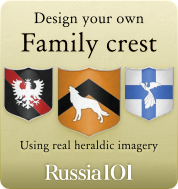
Why not see what your family crest could look like based on your own family characteristics?
Create CrestJoin the Irish Learning Rooms
Show off the CARDIFF Family Crest…
Wear your crest with pride...plenty of products to choose from



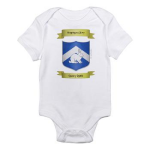
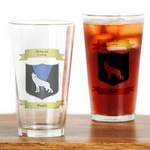
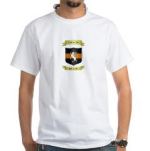
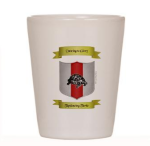
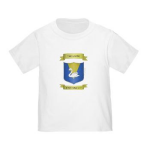
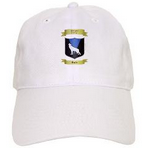
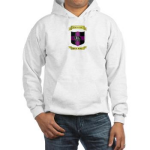
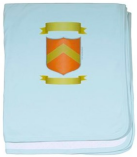
_(2).jpg)